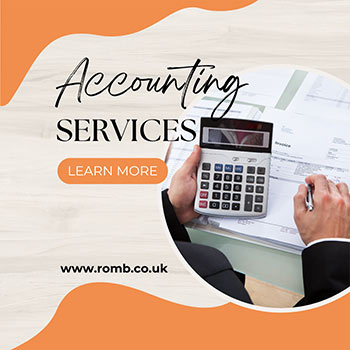
If you've ever wondered if pursuing an accounting degree is a wise investment of your time and money, you're not alone. With an increasing number of young professionals in the UK considering career paths that offer stability, high earning potential, and versatility, accounting continues to shine as one of the most rewarding and practical choices. Whether you're a DIY enthusiast looking to take control of your finances, a tradesman managing a growing business, or a designer navigating project costs and budgets, an accounting degree can offer more than just a traditional desk job—it offers foundational knowledge that benefits countless industries.
Stability in a Changing Job Market
One of the most compelling reasons to consider an accounting degree is the promise of job security. Accounting is essential to nearly every organisation—from small start-ups in London’s Shoreditch, to large multinational construction firms spread across the UK. Regardless of economic fluctuations or global disruptions, businesses will always need accountants to handle taxes, budgets, audits, and financial strategy.
As the UK economy evolves, automation and outsourcing affect many industries. However, accountants and finance professionals remain consistently in demand. The reason? An accountant doesn't just input numbers—they provide insight. From industrial architects budgeting major builds to professional tradesmen expanding their operations, there's always a need for astute financial management.
Even during economic downturns, accountants are employed to reduce inefficiencies, plan restructuring or help steer companies back to profitability. This makes it one of the most resilient career paths out there, especially for those seeking long-term sustainability and peace of mind.
Wealth of Career Opportunities
Many believe accounting is limited to tax returns or spreadsheets. But with an accounting degree in the UK, the doors open far wider. You could become a forensic accountant investigating financial discrepancies, a management accountant guiding business strategy or even specialise in environmental accounting—a rapidly growing field as businesses look to measure their sustainability impact.
Accountants in UK serve pivotal roles across many sectors, from the creative industries and tech start-ups to the construction and home improvement sectors that interest many of our readers. Whether you’re working behind the scenes in a design firm or supporting large-scale refurbishments for domestic clients, financial planning and analysis are key to success. And that’s where an accounting background shines.
Beyond employment, an accounting qualification offers the skills needed for entrepreneurship. Many tradespeople eventually launch their own companies, where understanding tax laws, margins, and cash flow becomes crucial. An accounting degree brings confidence to handle these challenges effectively.
Return on Investment: Earnings & Progression
Let’s talk numbers. According to the Association of Accounting Technicians (AAT), entry-level salaries for junior accountants start between £18,000 and £25,000, depending on location and qualification. As you build experience and gain credentials such as ACCA, CIMA, or ICAEW certifications, this number grows significantly.
Mid-level accountants in the UK can earn between £30,000 and £55,000, while senior finance roles often exceed £75,000, especially within construction management, property development and fast-growing SMEs. This upward trajectory makes accounting one of the highest-earning professions that don’t require a medical or legal degree.
In short, if you’re making a long-term career plan, the earning potential of an accountant is not only attractive but also attainable, particularly when compared to the relatively modest tuition costs of an accounting degree in the UK.
Mastering Financial Independence
An unexpected but crucial benefit of an accounting degree is how it empowers your personal life. Imagine being able to create an accurate household budget, evaluate investment opportunities, or launch a DIY side hustle and know exactly how to manage your earnings. The financial literacy gained through accountancy opens doors far beyond a career—it provides lifelong independence.
For those working in construction or design, managing cash flow and procurement costs can make or break a project. If you're quoting for kitchen installations, buying supplies in bulk or managing subcontractors, accounting skills give you the edge. By understanding depreciation, profit margins and taxes, you’ll make smarter decisions for both your professional and personal projects.
It also helps with effective tax planning—vital for self-employed tradesmen, freelance designers or anyone supplementing income through commissions or property projects. The ability to forecast and plan can relieve stress and build a more stable financial future.
It’s a Pathway to Professional Recognition
Accountancy is also one of the few careers with a clear, reputable path to professionalism. With options like the AAT, ACA, ACCA, or CIMA qualifications, individuals can choose the type of accounting they want to specialise in and work towards professional titles that are respected around the world.
This not only boosts your job options and salary package, but it can also provide access to global job markets if you decide to work abroad. For UK-based professionals seeking freelance work on international platforms or working with overseas clients in architecture and construction, this recognition makes cross-border opportunities more accessible.
Moreover, these qualifications offer lifelong learning, networking opportunities, and training resources, helping you maintain your knowledge and stay ahead of trends in finance and regulation.
Versatility for Any Industry
Unlike some degrees that pigeonhole graduates into a narrow career path, accounting is surprisingly versatile. From working with local tradesmen on VAT registration to helping interior designers with pricing strategy, the skillset applies everywhere. No matter which industry you're passionate about—fashion, real estate, construction, retail or even gaming—every sector needs finance professionals to remain competitive and compliant.
For young professionals or university students still discovering their true calling, an accounting degree provides a safety net that is both practical and powerful. You could easily pivot into data analytics, corporate strategy, financial journalism or wealth management—the opportunities are limitless.
It’s Easier Than Ever to Study
Gone are the days when earning a degree meant attending campus full-time. Many UK institutions now offer flexible study options for working adults, including online degrees, part-time tracks and apprenticeship routes. These allow professionals in trades or creative industries to pursue a qualification while continuing to earn an income.
This flexible structure is ideal for those already involved in home improvement, contracting or design, as it means you can build your knowledge and future without sacrificing current work or projects. The accessibility of accounting courses creates opportunities for a wide range of learners—from college graduates to adult learners re-entering higher education.
Conclusion: More Than Just Numbers
Whether you’re an ambitious young professional, a hands-on tradesperson or a seasoned designer managing client budgets, the benefits of an accounting degree are far-reaching. It offers stability, income potential and a toolbox of life skills that extend into every financial decision—both personal and professional.
In today’s uncertain world, investing in yourself and your financial knowledge is one of the smartest moves you can make. Don’t think of accounting as just counting pennies. Think of it as a pathway to independence, control and innovation in your chosen industry—whatever that may be.





